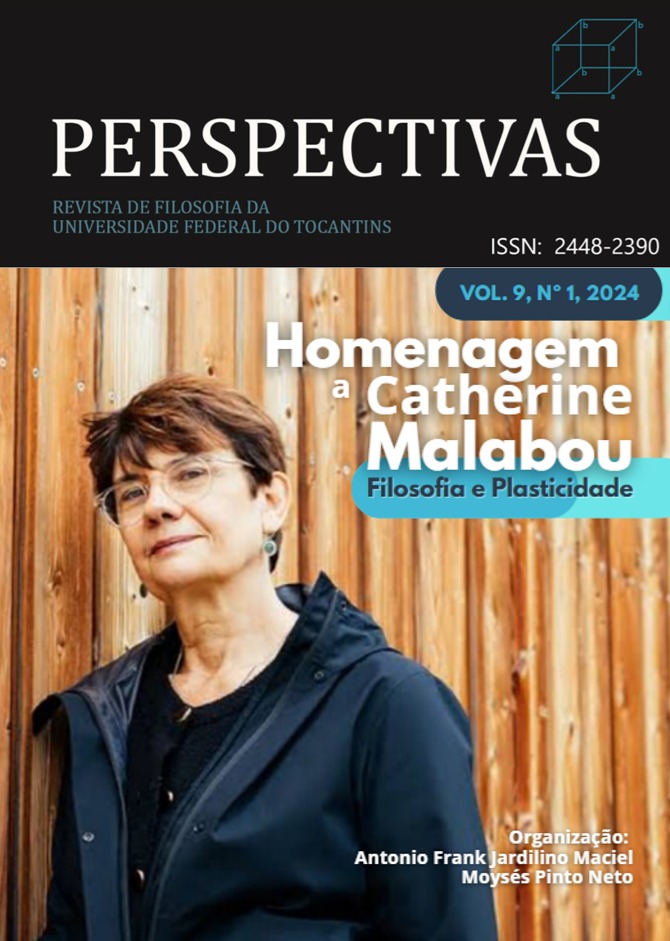One Life Only. Biological Resistance, Political Resistance
DOI:
https://doi.org/10.20873/rpv9n1-01Keywords:
Biological and Symbolic, Plasticity, Cloning, EpigeneticsAbstract
This is a programmatic text aiming to explore an impossibility, an unthinkable concept. Contemporary philosophy is marked by the uncritical and undeconstructed preeminence of symbolic life over biological life. We propose a synthetic theory that transcends biopolitics and biopower, avoiding opposition between the biological and the symbolic. Instead, it seeks a concept of biological resistance intertwined with political resistance, emphasizing their complicity (in the form of alternation) with a clear purpose. A dialectical and complex conjunction aids in understanding the role of biology in political resistance and vice versa. This prompts the need to rethink biology's transgression of biopolitical normalization and instrumentalization. The issue is not merely the expansion of a problem related to disciplinary discourse or life sciences practices. The text proposes that the long-held distinction between symbolic and biological life in the human sciences is now untenable. It asserts a symbolic resistance inherent in biology, where life resists both its polymorphism and fixation. Recognizing that the symbolic represents the diverse games life plays with itself, without fragmentation, allows us to grasp the revolutionary potential of cloning, its techniques, and epigenetic mechanisms. Epigenetics, in particular, resists the political reduction of biology to a mere vehicle of power. Reducing these new spheres to biopolitical normalization overlooks a new perspective: an evolving exchange within life itself, exposing it to risks and new possibilities
References
AGAMBEN, G. Homo sacer. O poder soberano e a vida nua I. Trad. H. Burigo. Belo Horizonte: Editora UFMG, 2007.
AMEISEN, J. C. La sculpture du vivant. Le suicide cellulaire ou la mort créatrice. Paris: Le Seuil, 1999.
CANGUILHEM, G. O conhecimento da vida. Trad. V. L. Avellar Ribeiro. Rio de Janeiro: Forense Universitá-ria, 2011.
ESPOSITO, R. Termos da Política Comunidade, imunidade, Biopolítica. Trad. T. Campbell, L. E. Fritoli, J. P. Arrosi, A. C. Machado Fonseca, R. M. Fonseca, Curitiba: Ed. UFPR, 2017.
FOUCAULT, M. O Nascimento da Clínica. Trad. R. Machado. Rio de Janeiro: Forense Universitária, 2001.
FOUCAULT, M. História da sexualidade I: A vontade de saber. Trad. de M.T. da Costa Albuquerque e J. A. Guilhon Albuquerque. Rio de Janeiro: Edições Graal, 1988.
JABLONKA, E. e J. LAMB, M. Evolução em quatro dimensões: DNA, comportamento e a história da vida. Trad. C. Ângelo. São Paulo: Companhia das Letras, 2010.
JENUWEIN, T. “Epigenetics”. 2006. .
KAHN, A. “Quand les cellules du cerveau se mettent à produire du sang”. In: Le Monde. 23 de Janeiro 1999.
LE DOUARIN, N. Les cellules souches, porteuses d’immortalité. París: Odile Jacob, 2007.
MORGAN, T. H. “The Relation of Genetics to Physiology and Medicine”. In: Nobel lecture, 1935. <http://www.nobelprize.org/nobel_prizes/medicine/ laureates/1933/morgan-lecture.html>.
WADDINGTON, C. “The Basic Ideas of Biology”. In: Towards a Theoretical Biology. Edimburgo: Edin-burgh University Press, 1968-1972.
Downloads
Published
How to Cite
Issue
Section
License
Copyright (c) 2024 Catherine Malabou

This work is licensed under a Creative Commons Attribution 4.0 International License.
The Magazine is under the Creative Commons Attribution 4.0 International Public License (CC BY 4.0), according to which:
1) The authors retain the copyright and grant the journal the right of first publication, with the work simultaneously licensed under the Creative Commons Attribution which allows the sharing of articles published with the recognition of authorship and initial publication in this journal.
2) Authors are authorized to enter into additional contracts separately for distribution of the version of the work published in this journal, as long as there is recognition of authorship and initial publication in Perspectivas.
3) Authors are authorized and encouraged to disseminate published texts with proper references to the journal and its authors.





















